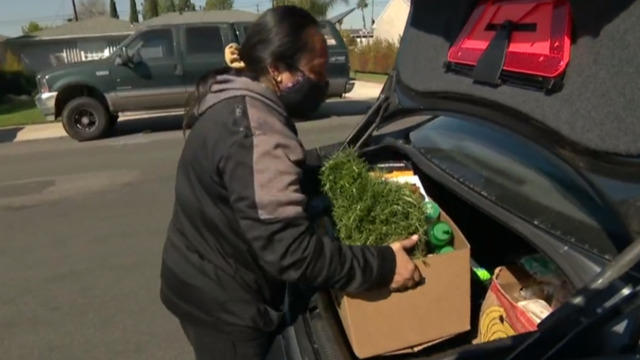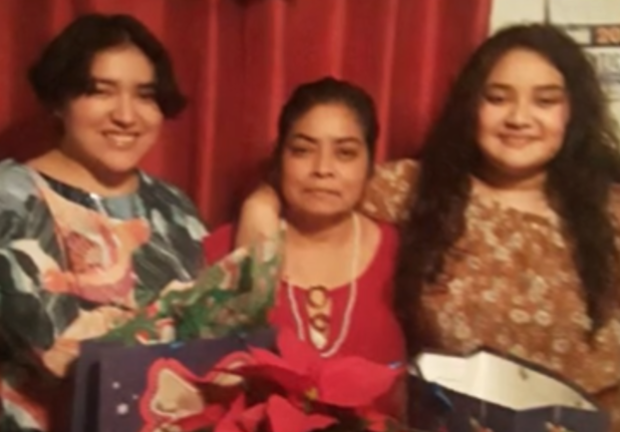▶ Watch Video: COVID financial fallout disproportionately impacts Latinas
Esperanza Hernandez and her two daughters are living in a small apartment with a shower curtain used to create a bedroom. She is one of the millions of Latinas in the U.S. who are facing hardships brought on by the coronavirus pandemic.
“I’ve always lived in the shadows,” Hernandez said.
She lived in the shadows, but she was able to make ends meet. Hernandez, who is undocumented, has always worked full time. In November, she became ill with COVID-19 and spent three weeks in the intensive care unit. Her 19-year-old daughter Andrea, who was born in the U.S., now earns the family’s only income while also attending college.
“I didn’t expect to be responsible for every single detail within my household,” Andrea said.
The pandemic hit the service industry hard, eliminating jobs in restaurants, housekeeping and childcare. For many undocumented women, their only safety net has become their children. There are no unemployment or disability benefits, rental assistance, or stimulus checks.
“They were not eligible for stimulus checks, even though they work and contribute taxes to our economy,” said Saundra Bryant, the director of All Peoples Community Center.
In the last year, unemployment among Latinas more than tripled. New data shows a third of Latinas with families say they are behind on their rent and one in five don’t have enough to eat.
Neighborhood food donations are a lifeline for Maria and her three U.S.-born children. Her husband died in January of a heart attack. She and her 21-year-old son Leo were both laid off from bakery jobs.
“There is no work,” Maria said.
Leo’s unemployment check is the family’s only income. “I give my mom money for rent and food,” he said.
Hernandez and her daughter both survived COVID-19, but are not sure they can survive the economic fallout.
“You can’t afford to be poor,” Andrea said. “Being poor is the most expensive way of life.”



































